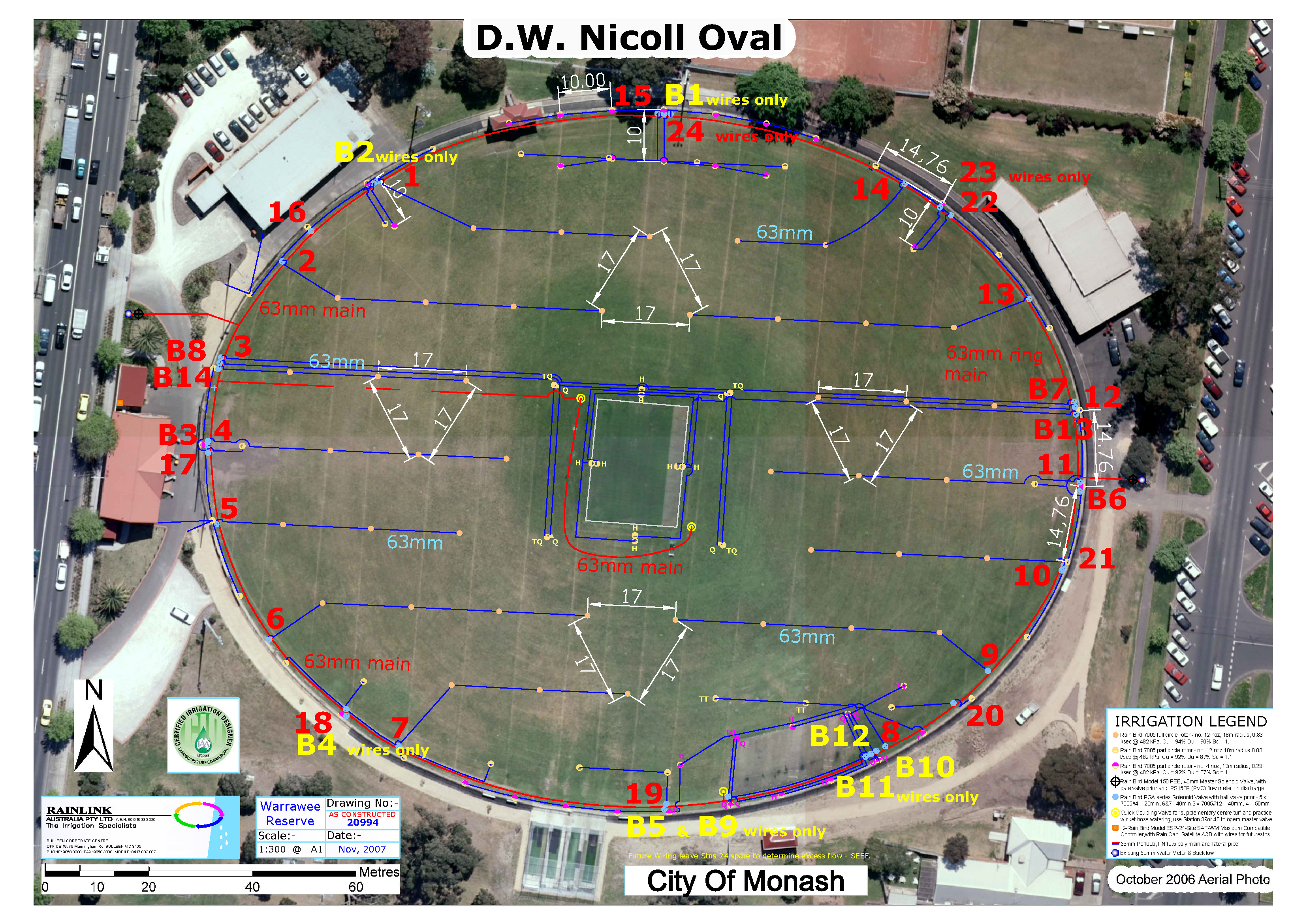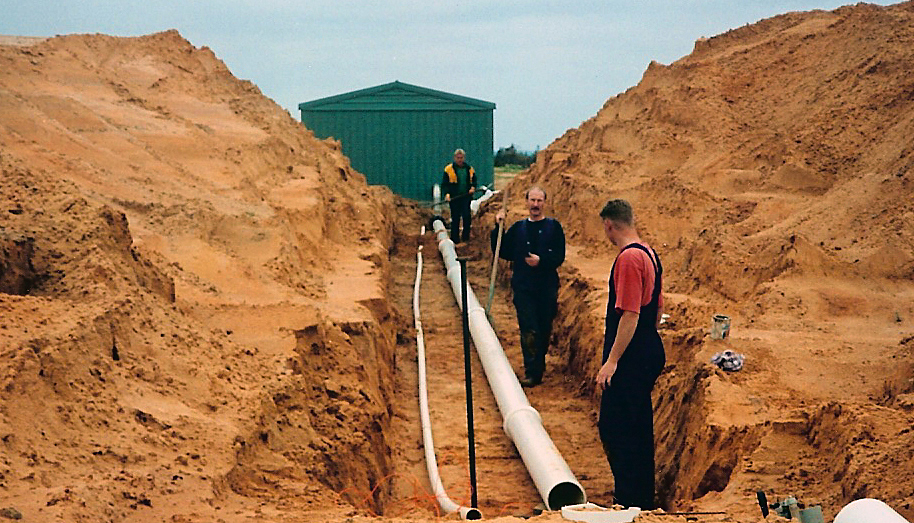
RESIDENTIAL AND COMMERCIAL IRRIGATION
Important information to achieve an efficient Residential & Commercial Irrigation System

Systems need to be effective and water efficient to reduce operating and maintenance costs.
To achieve this the planning criteria should include water conserving products with sprays and rotors spaced to ensure minimum overspray and with high distribution uniformity. Circuits should be separated to cater for various plant requirements and/or different product types to ensure matched precipitation rates are possible. Valves with pressure regulation ensure the best uniformity is obtained as well as minimising misting in high pressure situations.
Sprays and rotors can include check valves which initially are a little more expensive but prevent low head drainage as this means saving a lot of water over years of use. Controllers must have multiple programs and water conserving functions. A rain shut off device or commercial sensing device should be installed for each system. Large commercial and council sites should install compatible central control controllers to make the transition to central computer control easier and more cost effective than a complete changeout of products.
Ensure an as constructed plan of the site provides a true indication of the installation. Precipitation rates must be calculated with scheduling co-efficient included for each station to indicate suggested run times to apply the desired millimetre of water application that the landscape and turf require as a default for summer operation. This is a brief outline of things that the Client should specify, research or at least discuss prior to making their system and installation choice.
Pump and filtration systems for use with recycled water and non-potable irrigation systems need to be carefully selected to satisfy all authority requirements.








